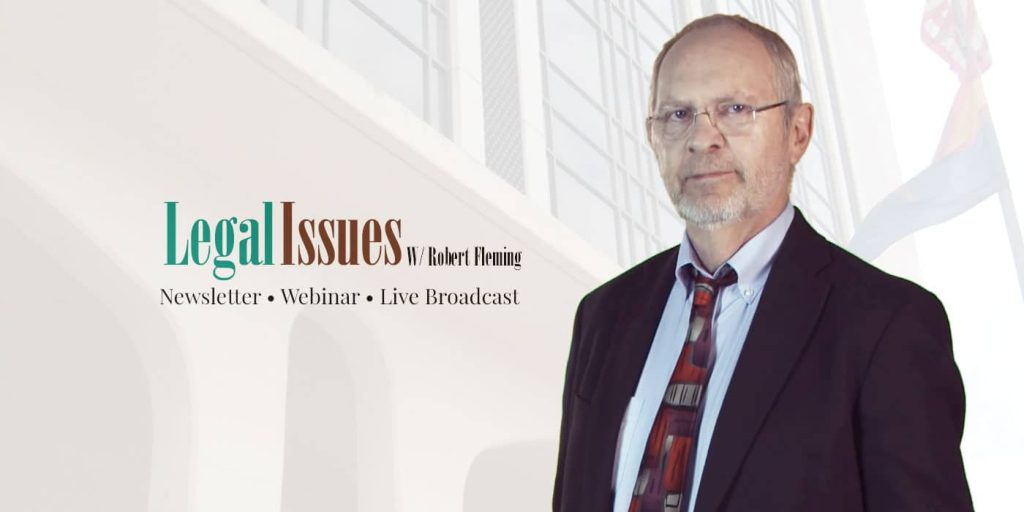JANUARY 16, 2017 VOLUME 24 NUMBER 3
Things change. This is our twenty-fourth year of publishing Elder Law Issues, and one thing we frankly didn’t think much about a quarter-century ago was privacy. Today it’s a big concern, and central to a lot of our thinking.
When Fleming & Curti, PLC, first formed in 1994, partners Tom Curti and Robert Fleming each already had nearly twenty years of professional practice. During those early years, we commonly included client’s Social Security numbers in estate planning documents, as did most practitioners. We all routinely provided detailed financial information in court filings — both in probate cases and in guardianship and conservatorship matters.
Yes, “identity theft” was an issue, even in the 1970s and 1980s. But most cases of identity theft in those days involved bad people looking for the names of people who had died in their teens, or even before, and applying for credit and entering into transactions using those names. Even if information was filed in the County courthouse, it was only theoretically vulnerable — few people knew how to get into court files, and one would have to physically travel to the courthouse to look up information. While nominally public, information filed in public records did not seem very vulnerable.
That is simply not the case any longer. Many county courts (not — yet — including the Pima County Superior Court in Tucson) have all of their court files available online. Regional and national aggregators — and even search engines — can list your name, or your parents’ names, for easy retrieval. Identity thieves can look up that information from the comfortable anonymity of their own computers, and from anywhere in the world.
At the same time, public information is generally, well, public. The community has a right to know who has been sued, who has brought suit, and who is involved in court cases. But how to balance that open disclosure with the need for privacy?
That’s the problem faced this month by the Maine Supreme Court — in a request by a single participant in the Maine guardianship/conservatorship system. “Emma” (not her real name — the Supreme Court itself agreed to “de-identify” Emma by giving her a false name) sought to have her financial records removed from the publicly available records. She alleged that the court was involved in disclosing her personal information, and that the practice should change. She also argued that removing the public information would be an appropriate accommodation under the Americans With Disabilities Act, and that failure to do so was discriminatory against individuals whose disabilities resulted in court-ordered guardianships and conservatorships.
The probate judge in Maine recognized that there was a legitimate concern. In an unusual request, he asked the state Supreme Court to tell him: should such records be completely hidden from view, referred to but not made available, summarized but not actually put online, or made completely available online?
The Maine Supreme Court punted. It observed that it might be appropriate to set a statewide rule, but not in an individual case. It ruled that Emma might well have a method of making her case, using her ADA argument. And, it reasoned, it wasn’t particularly good at giving general advice — its job was to decide individual cases, and not so much to review rules and procedures. They declined to answer the judge’s questions. Conservatorship of Emma, 2017 ME 1, January 5, 2017,
This problem faces every court, not just those in Maine. In Arizona, for instance, our Supreme Court has adopted extensive rules attempting to maintain privacy of items like Social Security numbers, bank records and balances, medical diagnoses and information. Today much of the contents of a guardianship or conservatorship file will be sealed, made available only on specific court order and then only to individuals who have some reasonable basis for getting access.
There are several other ironies in the Maine Supreme Court’s review of confidentiality. One involves Emma herself — though the Court changed her name, it left enough detail that it was frankly child’s play to look her up, learn her name and address, and the approximate value of her assets — without setting a foot in Maine. It took about fifteen minutes of online searching; we did not seek to learn anything about Emma, but only to see how easy it might actually be.
We sympathize with the Maine courts’ concern about how to balance information with privacy. We have been wrestling with the same problem in this weekly blog-based newsletter for several years. Regular readers will see that we, like the Court, anonymize names of litigants on a regular basis. We do that despite the reality that their names are usually public records (usually included in the name of the case itself — though not in Emma’s case). Why bother? At least we hope that a search for a grandmother or uncle by name will not list their legal troubles — and our newsletter article about them — at the top of the list. But in order to give readers the ability to follow up on the details of court opinions, we still have to include the name of the case.
It seems likely that the County court handling Emma’s case will continue to work on how to protect privacy issues. The judge who entered orders in her case — and who helped seal much of the public record about her — died in September last year. His elected successor: his wife, who presumably will have similar plans for protecting personal information in probate proceedings.



